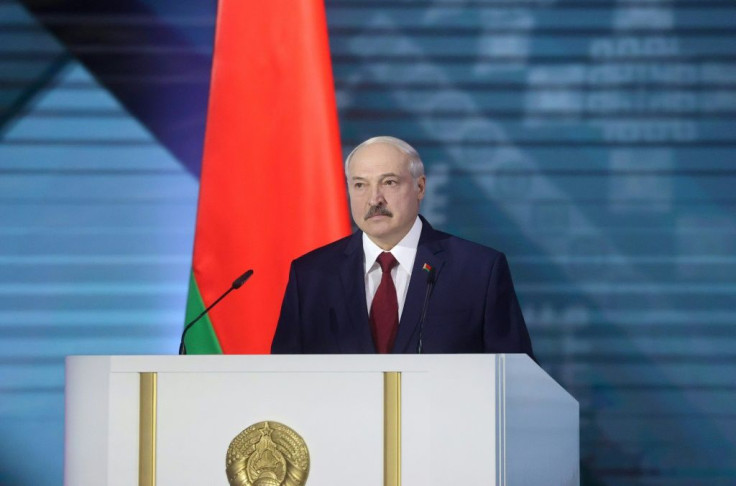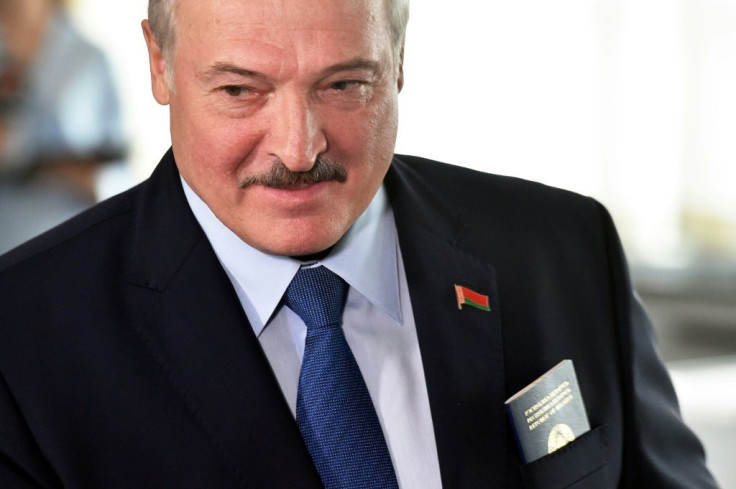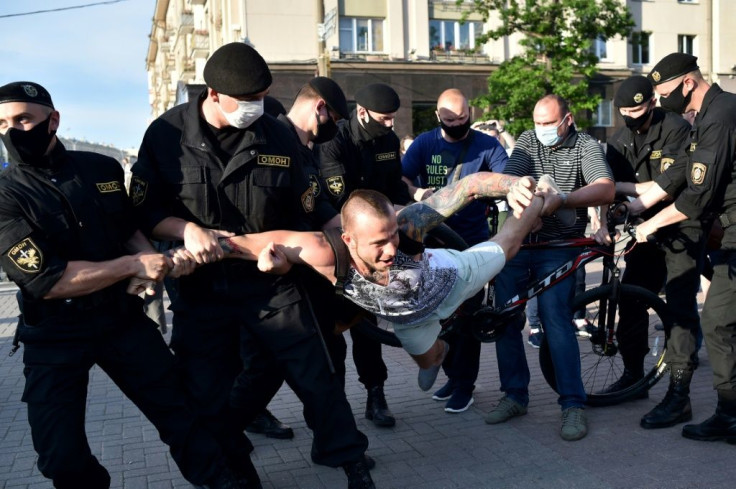Lukashenko: Belarus Autocrat Surviving Protests With Soviet Tactics
Emboldened after surviving months of historic demonstrations against his rule, the authoritarian leader of Belarus Alexander Lukashenko is drawing on Soviet-style political theatre to cement his grip on power.
Lukashenko, Europe's longest-serving leader who was previously the director of a collective farm in Soviet Belarus, is presiding over a people's assembly beginning Thursday to unveil political reforms he promised last year to calm the protests.
The gathering of nearly 3,000 delegates in the capital Minsk comes six months into a resolute crackdown on critics sparked by the 66-year-old Lukashenko's claim to a sixth term in elections last August.

The erratic leader was seen as clinging to power as he unleashed a brutal put-down of the wave of unprecedented and spontaneous protests, which were seen as the most significant challenge to his 27-year-rule.
His government has hand-picked the nearly 3,000 loyal delegates invited to the All-Belarusian People's Assembly, a hold-over from the Soviet era, which has no legislative power or opposition representation.
He has not given any indication what the reforms could be and instead made clear he intends to retain power, rebuffing calls from Western leaders and the opposition whose leaders have been exiled or jailed.

"I will not suddenly give up the presidency," Lukashenko said recently. "I have nothing other than Belarus. I cling to it and I hold on to it".
Lukashenko almost instinctively reverted last year to the use of brute force to crush the protests, in a response that left at least four dead, thousands detained and hundreds reporting torture in prison.
The tactics were similar to how he put down the last large demonstrations against his rule, in 2010, when his unrepentant use of force reinforced his reputation as the overseer of "the last dictatorship in Europe".

Lukashenko viewed one protest rally last year from a helicopter, describing the demonstrators as "rats," and later disembarked in a bullet-proof vest carrying a Kalashnikov.

His authoritarian streak stretches to his views on women, including political novice Svetlana Tikhanovskaya who ran in the August vote in place of her jailed husband and is widely believed to have been the vote's true winner.
He has said that Belarus could not possibly have a woman leader because she "would collapse, poor thing."
Amnesty International has accused Lukashenko's government of "misogyny" and targeting female activists with discriminatory tactics.
Lukashenko's latest election declaration said that he is still legally married but few can recall ever seeing the wife he wed in 1975.
He concluded a 2012 argument over rights with Germany's openly gay former foreign minister Guido Westerwelle by saying: "Better to be a dictator than gay."
This machismo is accompanied by folksiness that appealed to voters used to the stiff octogenarians that dominated Soviet political life around the time of the superpower's collapse in 1991.
Lukashenko likes being filmed driving tractors or picking watermelons and potatoes. He once gave US action actor Steven Seagal a carrot that he cleaned himself with a peeler and joined Putin at amateur ice hockey matches.
He refused to introduce a coronavirus lockdown and instead issued health tips like drinking vodka and taking steam baths.
He has appeared with his youngest son Nikolai at state functions and official foreign trips since the 16-year-old was a toddler, raising speculation he was grooming a successor.
Yet these peculiarities make Lukashenko an unpredictable ally for Russian President Vladimir Putin who has sought to return Minsk into the Kremlin's fold.
Lukashenko watched with worry as Moscow seized Crimea in 2014 and to distance himself from Moscow has dangled the promise of political and social changes long demanded by the West.
But since the protests erupted, he has warmed again to closer ties with Putin and the two leaders have discussed deeper integration.
© Copyright AFP 2024. All rights reserved.





















